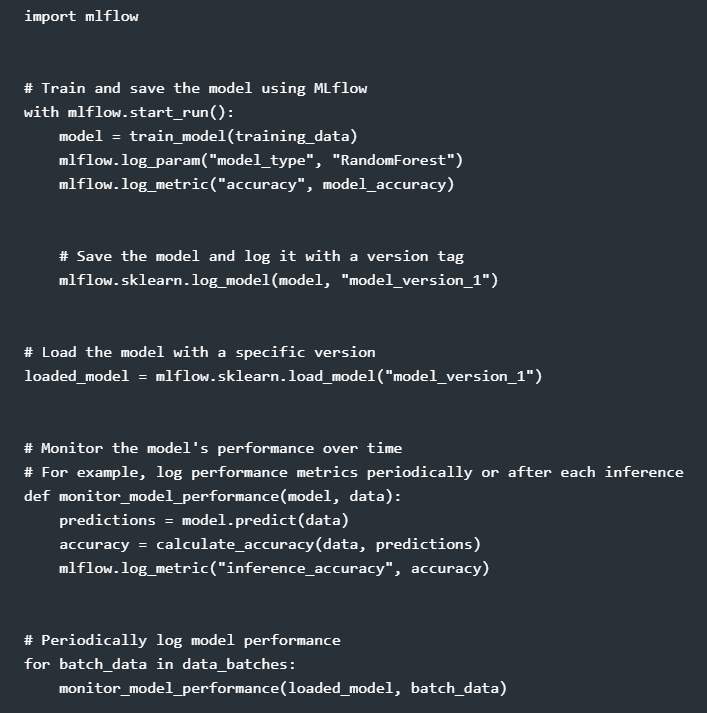Good ML?
In the ever-evolving landscape of technology, the demand for efficient and reliable machine learning projects has reached new heights. To meet these demands, organizations are increasingly turning to an integrated approach that combines DataOps, DevOps, and MLOps. This powerful synergy ensures that machine learning projects are not only successful but also scalable, maintainable, and adaptable to changing requirements. In this article, we will delve into the integration of DataOps, DevOps, and MLOps, and explore how it lays the foundation for a perfect machine learning project.
DataOps:
DataOps is a collaborative methodology that streamlines the flow of data from inception to consumption. It emphasizes collaboration between data engineers, data scientists, and other stakeholders, enabling seamless data integration, quality, and governance. In a machine learning context, DataOps ensures that data is efficiently collected, cleaned, and transformed, creating a solid foundation for accurate model development.
DevOps:
DevOps, on the other hand, is a set of practices that bridge the gap between software development and IT operations. Its core principles revolve around automation, continuous integration, continuous delivery, and monitoring. In the realm of machine learning, DevOps ensures that code is efficiently developed, tested, and deployed, allowing teams to respond rapidly to changes and deliver models with higher consistency.
MLOps:
MLOps is an extension of DevOps tailored specifically for machine learning projects. It integrates the principles and practices of DevOps with the unique challenges of ML development. MLOps enables version control of ML models, facilitates automated testing and deployment of models, and ensures ongoing model monitoring and management. This level of automation and standardization reduces the risk of errors, improves collaboration, and accelerates the deployment of machine learning models into production.
The Perfect Synergy
The integration of DataOps, DevOps, and MLOps is the cornerstone of a successful machine learning project. Here's how each element complements the other:
a. DataOps lays the groundwork: By adopting DataOps practices, organizations ensure that data is well-prepared, properly documented, and easily accessible to data scientists. This significantly reduces the time spent on data wrangling, allowing data scientists to focus on model development.
b. DevOps streamlines development: DevOps principles enable data scientists to work closely with software developers to integrate ML models into applications seamlessly. Continuous integration and delivery pipelines provide faster feedback loops, minimizing the time between model updates and deployment.
c. MLOps ensures model reliability: MLOps introduces automation and version control to ML models, mitigating risks associated with manual interventions. Automated testing guarantees model robustness, while continuous monitoring identifies and rectifies performance issues in real-time.
Key Benefits
The benefits of integrating DataOps, DevOps, and MLOps in a machine learning project are numerous:
a. Enhanced Collaboration: The collaborative nature of DataOps fosters better communication between data teams, resulting in a shared understanding of data requirements and business goals.
b. Increased Efficiency: DevOps principles
accelerate the development lifecycle, allowing data scientists to iterate on
models rapidly and deploy them with confidence.
c. Scalability: MLOps automates the process of deploying and managing models, enabling easy scaling to handle increased workloads.
d. Reliable Decision-Making: The integration of these methodologies ensures that the models deployed in production are trustworthy, aiding better decision-making processes.
Example 1: DataOps - Data Integration and Preparation
DataOps emphasizes the importance of seamless data integration and preparation. Let's consider an example where we have two data sources: a CSV file and a SQL database. We want to combine the data from both sources, clean it, and prepare it for model training.

Example 2: DevOps - Continuous Integration and Continuous Delivery (CI/CD)
DevOps principles advocate for continuous integration and delivery to ensure that code changes are quickly and reliably deployed to production. In this example, let's consider a simple CI/CD pipeline for a machine learning model.
Assuming you have set up a version control system (e.g., Git) and a CI/CD tool (e.g., Jenkins):
Whenever a data scientist makes changes to the model code, they commit the changes to the version control system.
The CI/CD tool (e.g., Jenkins) automatically triggers a build whenever changes are pushed to the repository.
The build process involves running automated tests on the model code and the dataset to ensure its correctness.
If the tests pass, the CI/CD tool automatically deploys the updated model to the production environment.
Example 3: MLOps - Model Versioning and Monitoring
MLOps introduces model versioning and monitoring to ensure model reliability and performance. Let's consider an example of how to version and monitor a machine learning model using MLflow.

In this example, MLflow is used to track the model version and log various metrics during training and inference. The versioned model allows you to easily switch between different versions, while model monitoring helps you ensure that the model's performance remains consistent over time.
Takeaways
As machine learning becomes more integral to businesses across industries, adopting an integrated approach that combines DataOps, DevOps, and MLOps is no longer a choice but a necessity. This perfect synergy not only expedites the machine learning project development process but also improves its accuracy, reliability, and maintainability.
By fostering collaboration, enhancing efficiency, and enabling scalability, organizations can pave the way for a successful machine learning project that truly delivers on its promises. Embrace the power of DataOps, DevOps, and MLOps, and unlock the full potential of machine learning in your organization.
Giancarlo Cobino
Giancarlo Cobino


I’m extremely inspired along with your writing abilities as smartly as
with the layout on your weblog. Is this a paid subject matter or did you
customize it yourself? Either way stay up the excellent high quality writing,
it is rare to see a nice weblog like this one today.
Beehiiv!